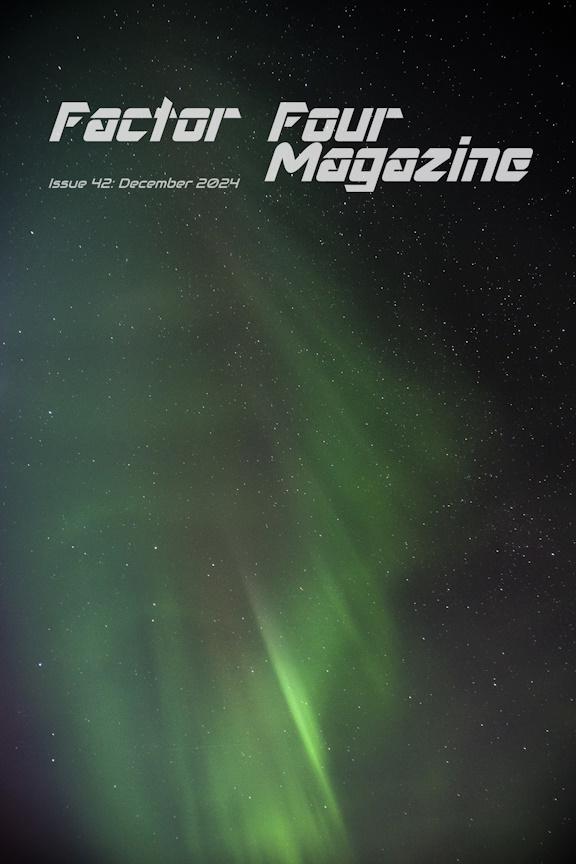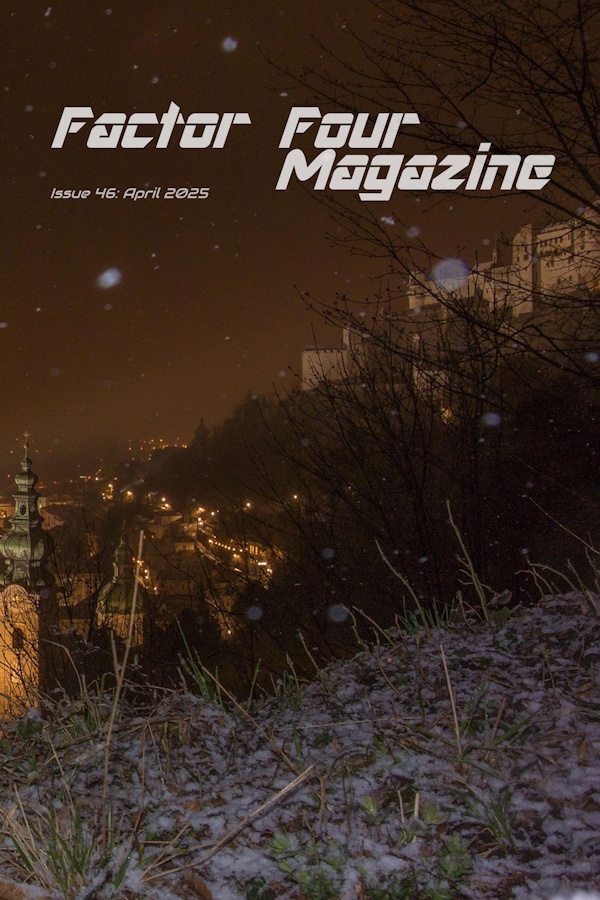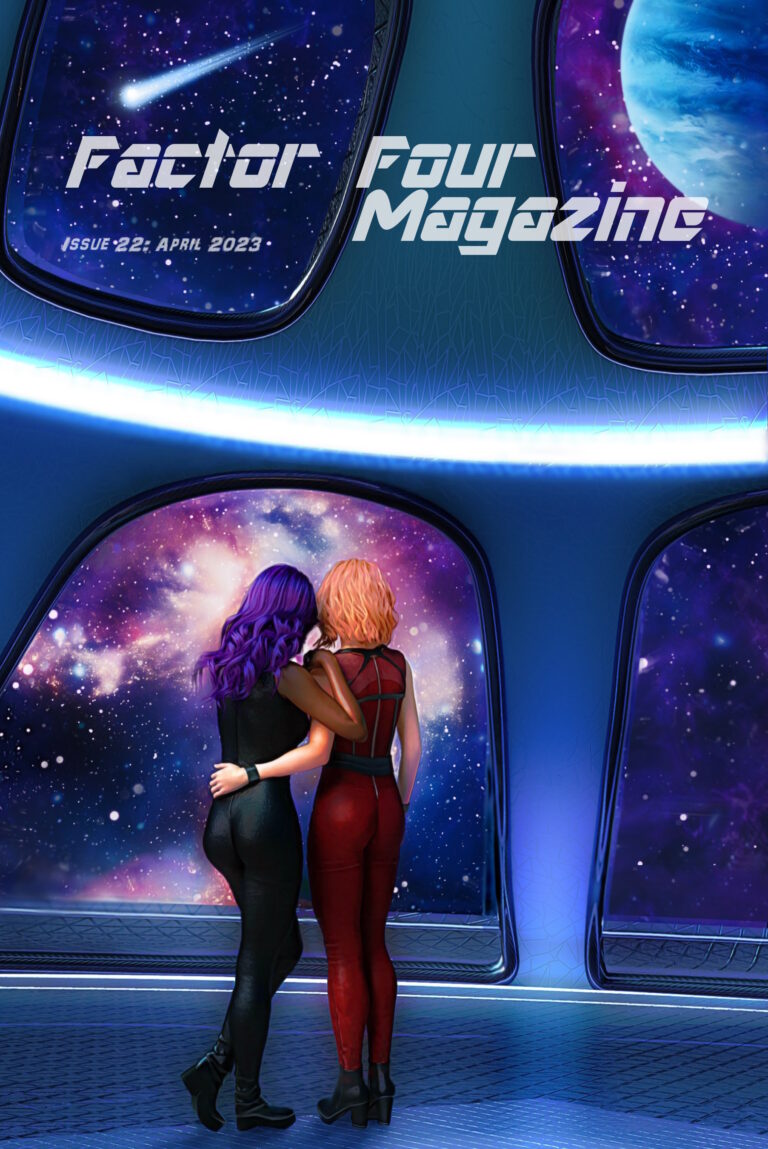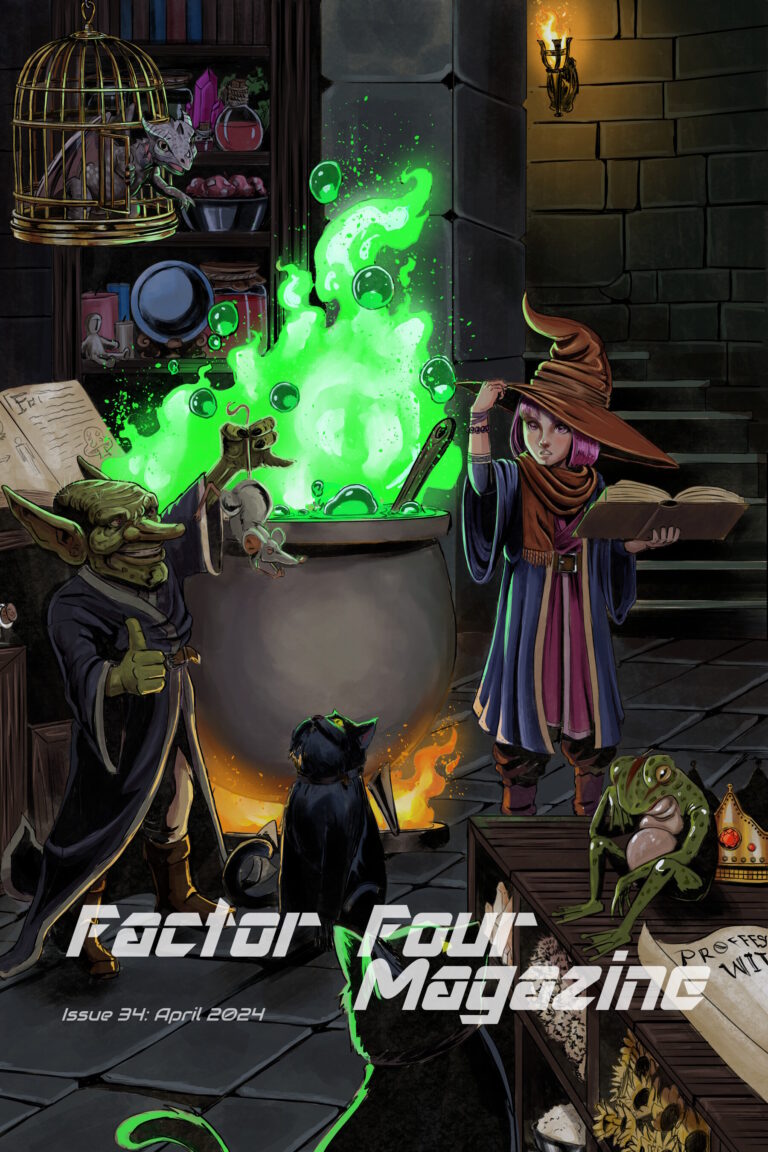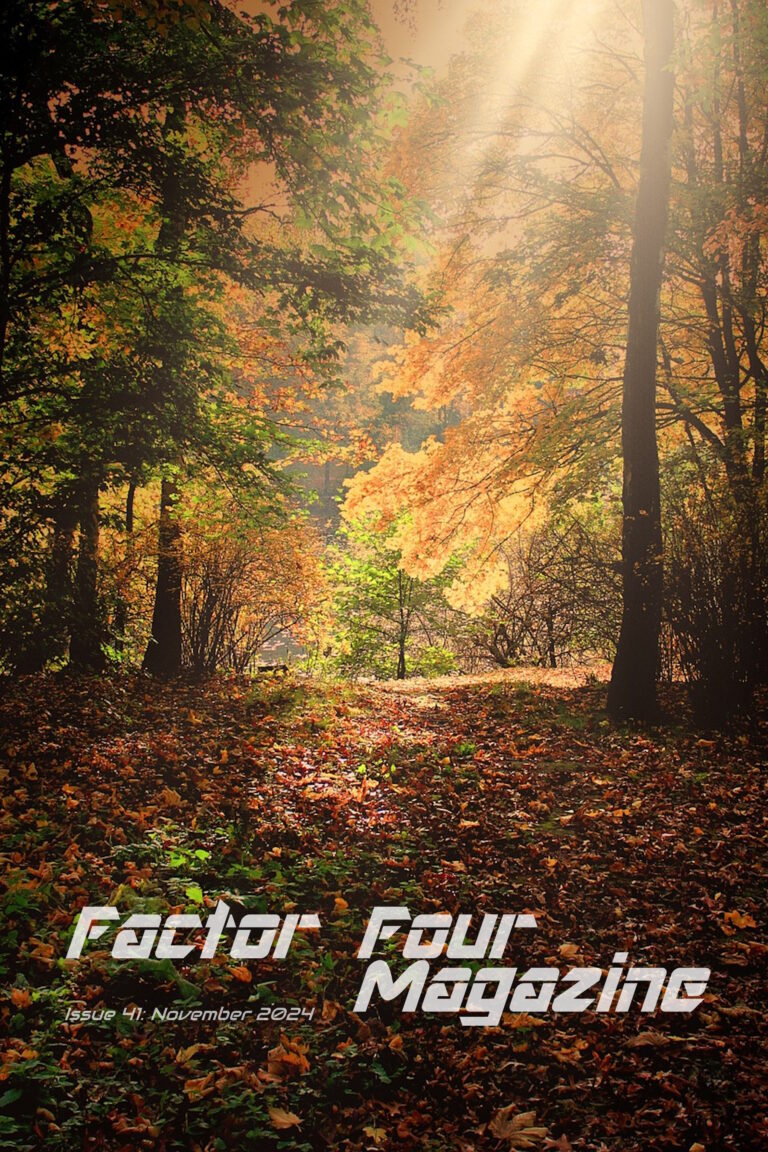Wash the World Away by Wendy Nikel
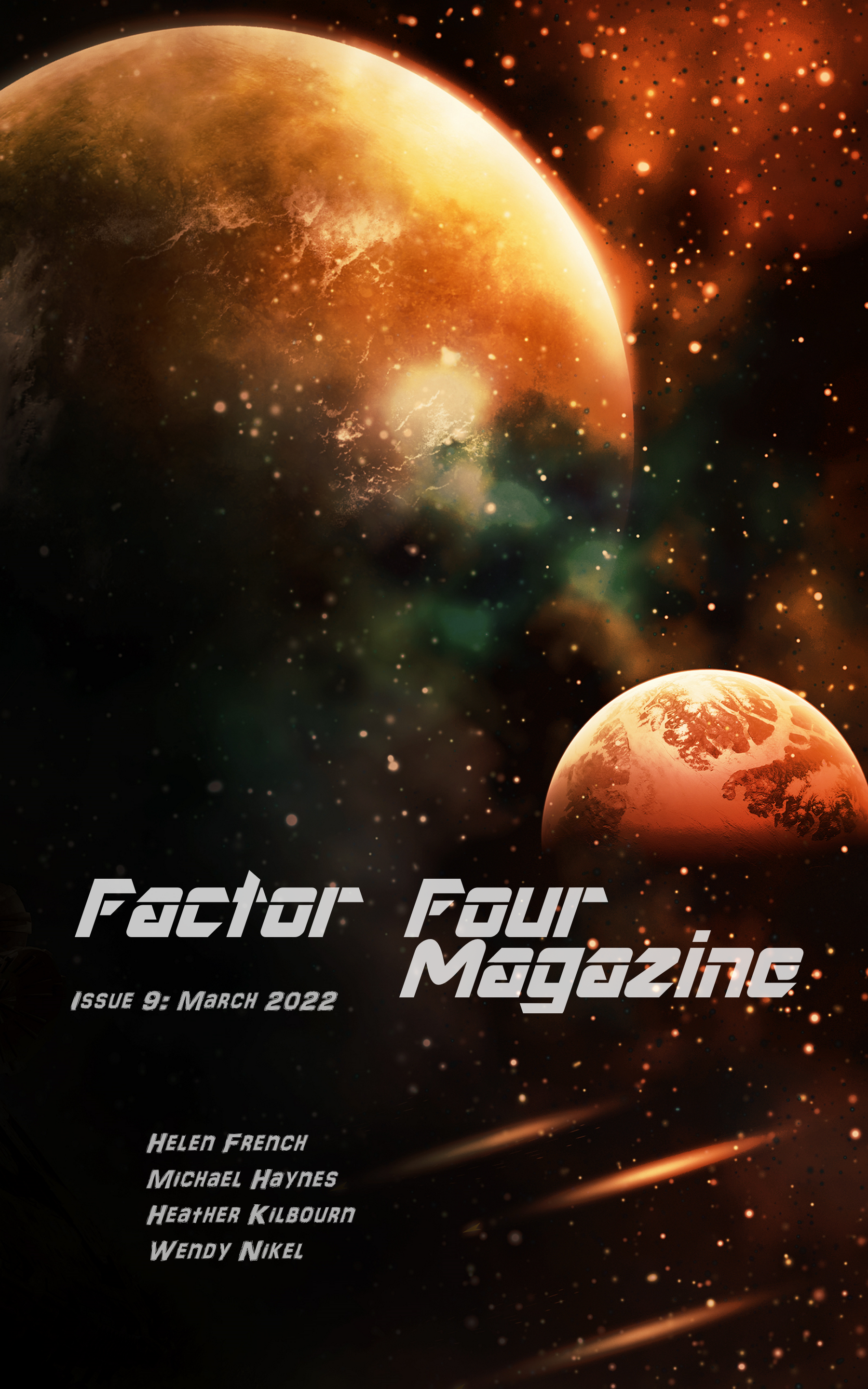
When I step off the bus it starts pouring, taking everyone by surprise—except me.
Fellow travelers jostle for position under the bus stop’s overhang, kids shrieking and parents scolding them to stay out of puddles. A businessman grumbles about not having his umbrella: “The one day all week we were supposed to have blue skies!”
Road-darkened water splashes my rainboots as I walk away, passing a poster advertising the latest apocalyptic thriller: Floodwaters II! Raindrops chase one another down the steamed-up aluminum surface, making the whole broken world look washed out.
I don’t notice the woman walking two steps behind me until she speaks. “Beautiful, ain’t it?”
I crane my neck around. She’s kidding, right?
She doesn’t look kidding. She walks with her face uplifted, her lightly graying hair collecting droplets like a magical net. Her golden eyes exude a warmth that’s as substantial and real as the rain. She holds her palms out, as if welcoming the water to earth. As if offering it a home.
“Beautiful?” I ask, still skeptical. “You’re the only one who seems to think so.”
I’d know. For as far back as I can remember, I’ve seen how the rain showers that follow me around always brought out the worst in people: hairdos sagging, makeup running, clothes dripping and clinging, faces scowling at being caught in an unforeseen deluge. I’d thought it’d be easier out here in Portland, a city known for its cloud cover and rainy days, but it’s true what they say about familiarity and contempt. I’d hoped to blend in, but even in my short daily commute, I only seem capable of ruining others’ days.
“Back home in Arizona, folks’d be falling over themselves for this sort of shower.” The woman chuckles as she turns to cross the street, calling back over her shoulder. “Sometimes you gotta be willing to stand out to make a difference.”
And with that, she’s gone, taking with her the warm breeze that had followed us from the bus stop.
As the weeks pass, I watch for her smiling face and that warm gust of air that I suspect is no more coincidence than the dripping clouds that follow me. I don’t see her again, but now that I’m looking—really looking—I’m surprised at what I find:
This city’s full of people just like me.
I recognize them by their rainboots and weatherproof bags and no-fuss hairstyles that look the same dry as wet. By their lack of surprise at the sudden showers. By their stormy-gray eyes that they never allow to lock onto anyone else’s for more than the gap between raindrops.
Who knew there were so many of us here? Certainly not the weathermen or the crews repairing washed-out roads. And if the others are anything like I was, they don’t realize, either, that there’s anyone in the whole world like them, or how each of us individually is contributing to the collective cacophony.
“Quite the rainstorm we’re having today.” I try to strike up a conversation at the bus stop with a rainboot-clad man. He just grunts and pulls out his phone, feigning some all-consuming text.
I don’t blame him. We all just want to blend in, to lay low, avoid confrontation. To hide within this echo chamber from the uncomfortable onus of truth.
That night, I pull up my bank balance and a national weather app. I search recent articles for the word “drought,” and draw squiggly lines with a pink highlighter on the atlas my dad bought me. The marker’s ink is nearly dry, and it scratches noisily along the paper, but I can see well enough the winding rattlesnake path through the desert, each bus stop marked with a star.
The next morning, I call in sick and pack a bag.
I’ve never seen skies so blue, and I wonder, as I stare out the window, if this’ll really work. I can feel the air’s dryness on my skin, in my throat, and as the bus crosses bridges, I have to peer way, way down the rocky slopes to glimpse where the rivers trickle below. Even the reservoirs seem more like half-dried puddles than the lifeblood of such vast cities. How long has it been since they’ve seen a proper rainstorm?
Can one person really make a difference? Will I even be welcome here?
I get my answer soon enough.
My fellow travelers jostle down the bus’s steps, their arms outstretched in eager welcome. Kids shriek, and parents clutch their hands, leaping with them into fast-forming puddles. A businessman drops his briefcase and breathes in deeply, letting the droplets roll in tiny streams down his jacket. Sure, some folks scowl or cast me suspicious looks, but I can’t help smiling, and soon enough, they look away.
When I step off the bus it starts pouring, taking everyone by surprise—myself included.
Crisp, cool water splashes my rainboots as I walk away, past a poster advertising the latest apocalyptic thriller: Dust Bowl II! Raindrops chase one another down the dingy aluminum surface, peeling away the layers of grime and making the whole broken world look clean and renewed.
A warm breeze swells around me, and a voice says softly, “It’s beautiful, isn’t it?” I can hear the longing in the young woman’s voice and see it in her golden, upturned eyes.
As I brush past, I slip my return ticket into her pocket, on the instinct that maybe it will get her thinking. Maybe it will get her noticing, too, that here, there’s heat aplenty. Here, an extra bit of warm breeze might go unnoticed and unappreciated, but there are other places that could use the fresh perspective of her golden eyes… If only she dares to stand out.

